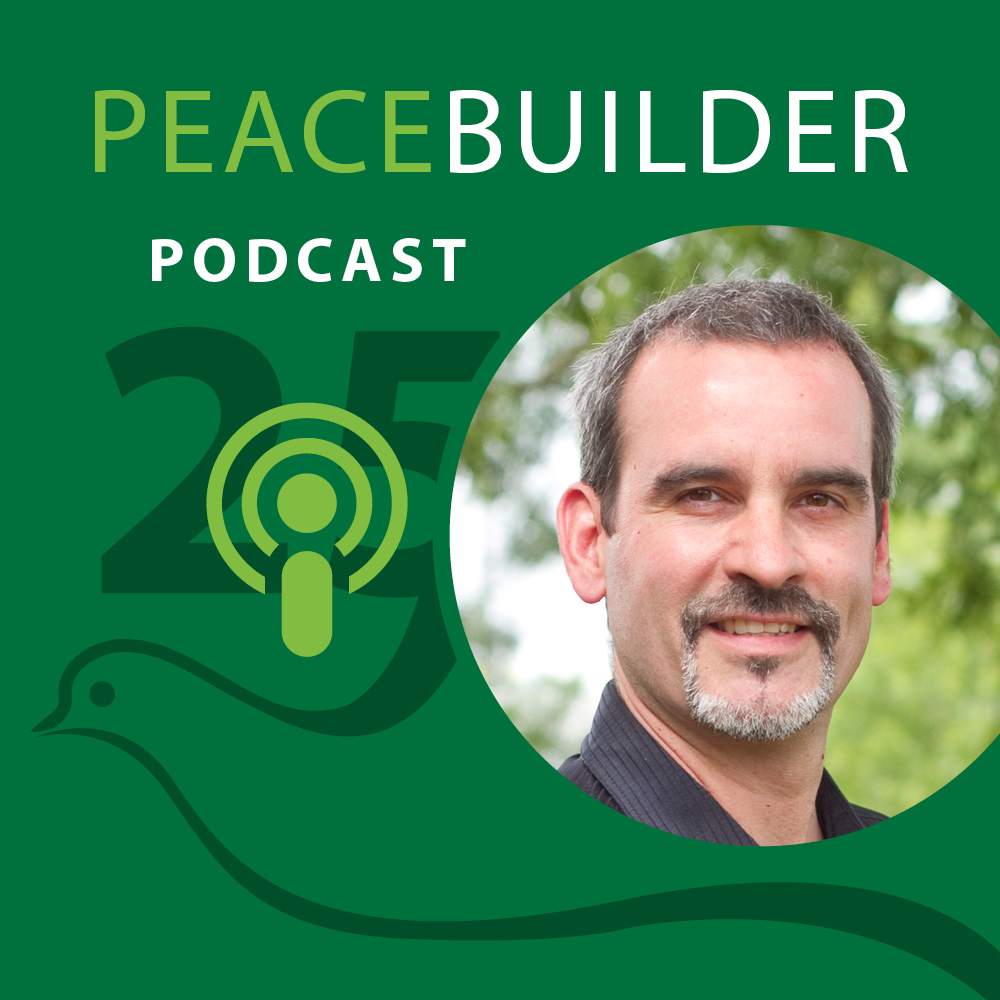Podcast link
In this episode, Dr. Carl Stauffer, professor of Restorative and Transitional Justice here at CJP, and an engaging storyteller, reflects on his childhood in Vietnam and the way that war shaped his outlook on life; his early adulthood with a young family in South Africa during a time when the nation was experiencing rapid transition away from decades of apartheid rule. He talks passionately about how central his Anabaptist faith has been pivotal in his work and how it continues to shape the way he shows up and teaches in the classroom.
Stauffer’s parents were doing church and development work in Vietnam when the war broke out. They decided to stay, and Stauffer was born there in 1964.
“That has affected my life and work significantly,” Stauffer said. He remembers one night that the fighting came within a half mile of their home in Saigon, “climbing under the bed with my mother and singing and praying, and the house shaking.”
Following in his parents’ footsteps, he and his wife, Carolyn Stauffer, joined the Mennonite Central Committee (MCC) in South Africa in the “historic” moment of 1994 – only months before Nelson Mandela was elected. It was from South Africa that Stauffer completed his master’s degree at CJP, known then as the Conflict Transformation Program. After 16 years in South Africa, Carl joined the CJP faculty (Carolyn is also a faculty member at EMU and has worked with CJP programs).
In recounting his experiences through the episode, Stauffer weaves a story of the development of transitional justice, which he defines as an umbrella term that came about in the 1990s that describes structures and processes that are built to contain violence while a country moves from war to peace. In 2007, Stauffer’s commitment to transitional justice blossomed in a refugee camp in Sierra Leone, where he supported a “justice movement from the grassroots” that implemented indigenous ways of addressing conflict on a macro level.
Today, Stauffer says, we have a “steep learning curve” to apply these concepts and practices to our own society in the U.S. “Issues of healing, forgiveness, and reconciliation remain really divisive concepts right now in the polarization of our current political setting,” Stauffer said. But throughout all of the difficult work he’s done, and the violence he’s seen in the world, Stauffer retains hope. “My interpretation, which is Anabaptist, is that Christ’s teaching and Christ’s way of living was not something just for us to imagine, but for us to do,” he explained.
Guest

Carl Stauffer
Dr. Carl Stauffer teaches Restorative and Transitional Justice here at the Center for Justice and Peacebuilding; he is also Co-Director of the Zehr Institute for Restorative Justice, a program of CJP. Stauffer has functioned as founder, director, academic coordinator and instructor for peace and justice institutes in four continents. As a seasoned conflict transformation and peacebuilding practitioner, he has done consulting and training with organizations such as UNDP, USAID, World Vision, ICRC, Asia Foundation, CRS, Tear Fund, SIDA, Oxfam, the Ministry of Safety & Security in South Africa, and many others. He earned his PhD in Conflict Resolution & Peace Studies from the University of Kwa-Zulu Natal.
